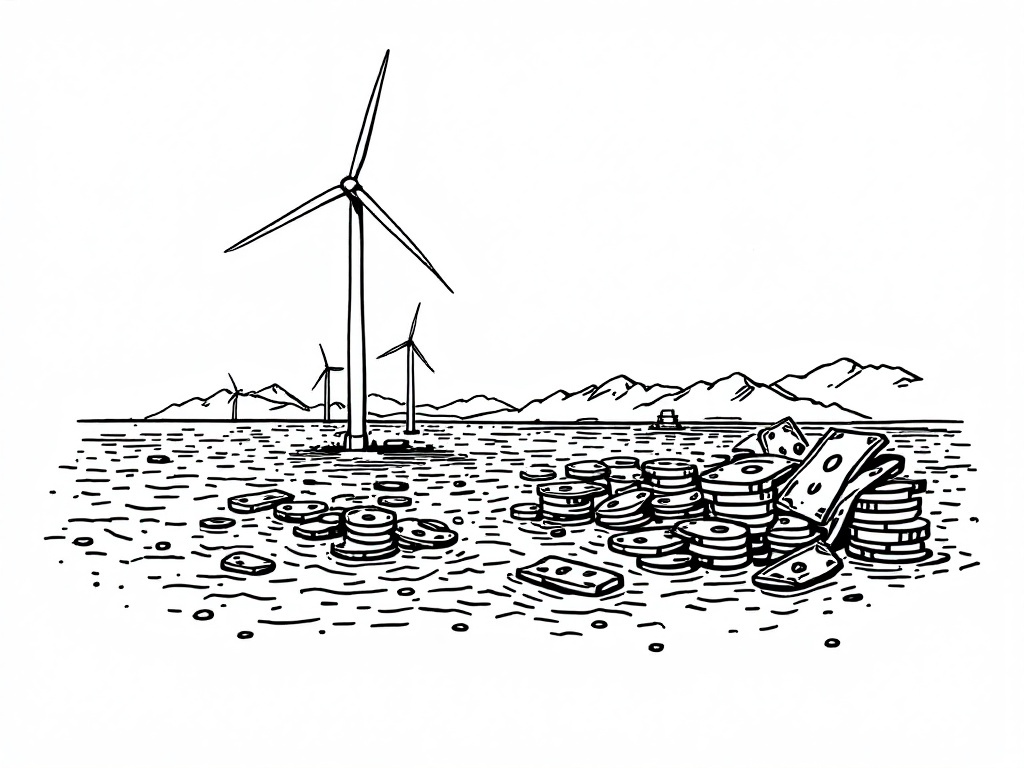Political Uncertainty Threatens U.S. Offshore Wind Expansion

Washington D.C., Monday, 28 April 2025.
The U.S. offshore wind energy sector faces delays due to political hurdles, with recent suspensions raising concerns over future renewable energy goals.
Regulatory Delays and Their Impact
The U.S. offshore wind industry is confronting major delays amid political and regulatory challenges. On April 16, 2025, the Biden administration, through the Bureau of Ocean Energy Management, announced a suspension of the Empire Wind project for further environmental evaluation. This decision aligns with the broader trend under President Trump’s administration to halt offshore wind projects, exemplified by his executive orders in January 2025. Such regulatory pauses are critical as they influence the timeline and development of infrastructure essential for renewable energy projects [1][2].
Industry Reactions and Strategic Shifts
On April 25, 2025, Germany’s RWE halted work on three offshore wind projects in the United States, citing the volatile political climate as a key factor threatening their business operations. This retreat not only reflects current challenges but also impacts the development of a domestic supply chain for renewable energy. The construction of the Charybdis, the first U.S.-built wind turbine installation vessel, emphasizes the long-term investments companies are making despite immediate project halts [2][4][7].
Economic Repercussions and Energy Security
The ripple effects on the U.S. economy are multifaceted, with potential losses surpassing billions in investments and threatening thousands of jobs. As offshore wind remains a pillar for the future energy strategy, the country risks lagging behind global leaders like Denmark, Germany, and the UK, which continue to expand their offshore wind capabilities rapidly. This stagnation not only affects economic growth but also hinders the transition to sustainable energy sources crucial for meeting net-zero goals [1][3][4][5].
A Path Forward Amidst Uncertainty
For the U.S. to regain momentum in its offshore wind endeavors, resolving existing political and regulatory uncertainties is imperative. Long-term policy stability could encourage reinvestment by companies like RWE and others that seek to innovate in wind technology. If the administrative hurdles and opposition from federal leadership persist, America’s potential leadership in renewable energy may remain unrealized, compromising both environmental objectives and competitive positioning in the global market [1][2][5][6].
Sources
- www.ecolearner.com
- www.windpowermonthly.com
- www.cnbc.com
- www.perplexity.ai
- www.ainvest.com
- medium.com
- oilprice.com